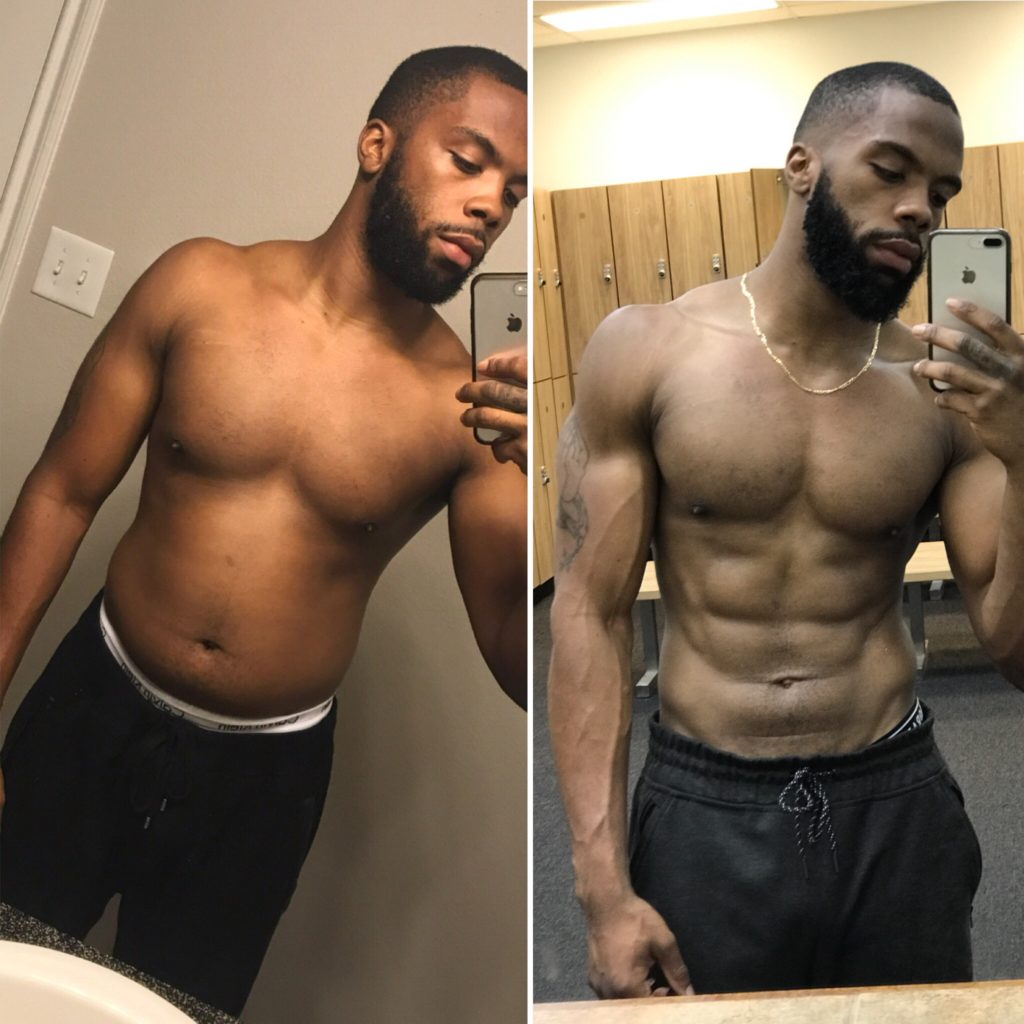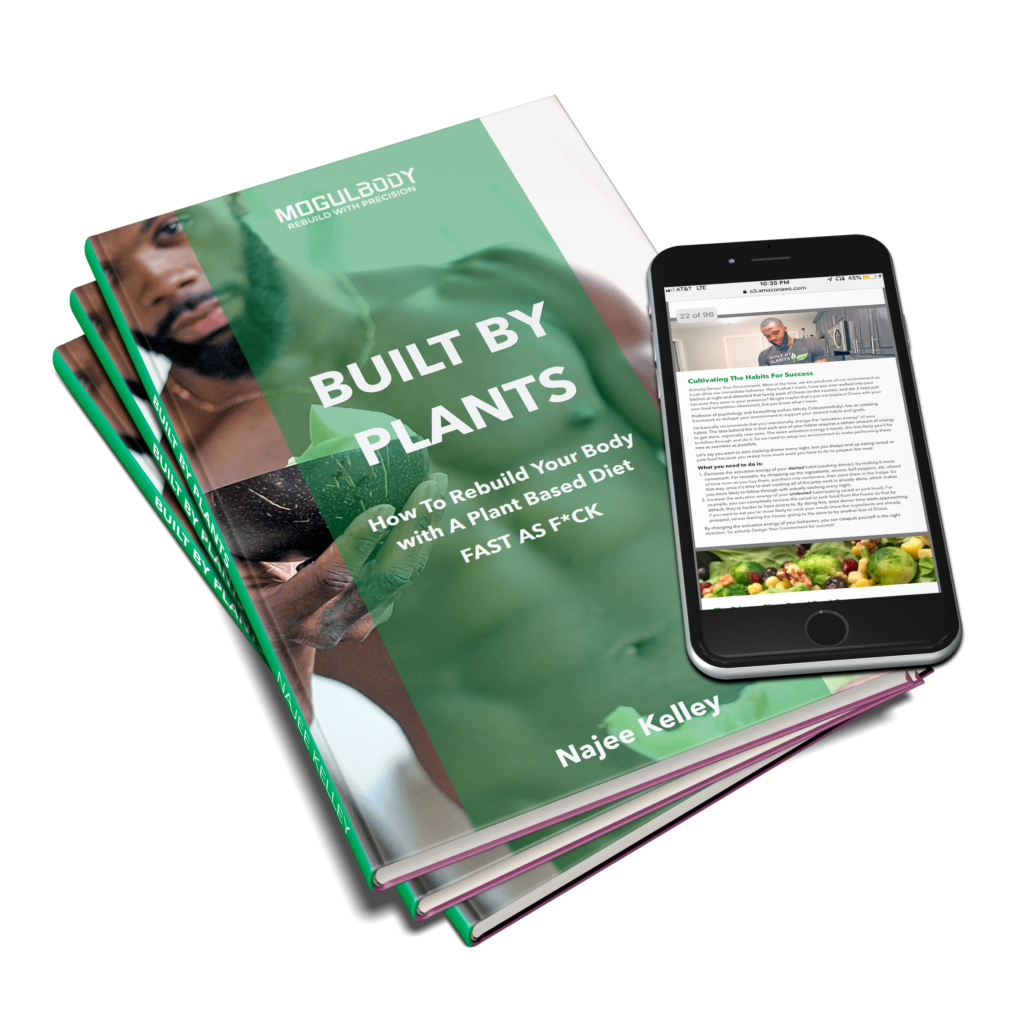Vegan Doesn’t Automatically Equal = Weight Loss

(For context, I was 100% Vegan in both images above, so what made the visual difference?)
Lately I’ve been getting a lot of DM’s from people asking about what do they need to do to actually lose weight. Practical steps.
Along with quite a few others lamenting the fact that even after they went vegan, they still haven’t lost any weight. Let me be the first to tell you that it’s NOT the diet’s fault. It’s Yours (tough love is the best love)
So I’m going to use this as an opportunity to address a lot of these concerns and misconceptions about being Vegan and weight loss. Because there is a BIG difference, and being vegan doesn’t automatically equal weight loss.
Lets get into it!
While I personally feel that a plant-based diet is the MOST EFFECTIVE diet for fat loss, (and Optimal Health) it is not 100% guaranteed that you will lose weight by simply eating in this way.
WHY? 🤔
You Can’t bring the same bad habits to a new diet. Because you WILL get the same old results. Neither can you out train an untamed diet.
If you want to start losing weight, you should have an eating strategy in place. Weight loss isn’t as much about the specific diet you are on as it is about the amount of calories you’re consuming daily versus the amount that you’re burning.
Let’s start with the fundamentals.
What is a Calorie?
Technical term: A calorie is the amount of heat needed to raise the temperature of one gram of water by one degree Celsius.
Now let’s put that in human terminology.
Calories in food provide energy in the form of heat so that our bodies can function. Our bodies store and “burn” calories as fuel.
So basically, a calorie is a unit that is used to measure energy. We have this concept called Energy Balance.
Energy balance is the difference between your energy input (the number of calories that you put into your body) and your energy output (the number of calories you burn each day.)
When you consume less calories than your body needs for energy throughout the day, this causes a deficit of calories.
When you eat more calories than our body needs for energy in a day, this is known as a Calorie Surplus.
Our bodies use the Energy from these calories to fuel EVERY action we take, even the ones we do unconsciously like breathing, blinking, yawning, etc.
When we eat Over our calorie maintenance, the body does not need to use these excess calories right away, so they are stored in your body as fat to be used later. It’s kinda like overfilling your gas tank and having to put the extra gas you paid for in a container for later use, since your car tank is full and cannot utilize the extra fuel.
Now if you’ve been paying attention, I’ve yet to say anything about the actual diet you’re on.
I didn’t mention vegan, keto, paleo, high carb, etc. This is because fat loss is not a direct effect of the types of foods you are eating, but rather the way that you are balancing out your overall energy/calorie input. I’ll explain more on food shortly.
We mainly store energy two ways, as muscle and as fat.
As you can see, the whole purpose for us to eat food is not necessary for taste, but rather for energy & essential nutrients. We all are burning calories 24/7, 365. Calories are our energy source that run on. How many calories you burn and need individually will depend on your activity level.
For example, if you work at a desk job, you won’t need to take in as much energy through food as someone who works as a mail carrier or say a professional athlete.
Simply because they’re burning a lot more calories throughout their day than you will be sitting most of the day.
When you consume less calories in a day than your body burns, you’ve effectively created a Calorie deficit.
A caloric deficit put simply is when you consume less calories than the amount needed to maintain your current body weight.
In order to burn fat, you must to be in caloric deficit, period. No way around it.
There are two ways you can do this:
1. By eating fewer calories than you consume on a daily basis.
2. Burn/expend more calories than you’ve consumed in a day through working out/ upping your activity level.
Using a combination of both of these will set you up for success. The most effective way to get in a “caloric deficit” is to focus on adjusting your diet.
If you’ve been trying to increase the calories you burn in a day, and aren’t comfortable with lifting weights, I would recommend High Intensity cardio to preserve lean muscle tissue and not spend hours treadmilling.
If you need a FULL weight loss plan that simplifies the entire process for you, check out The Body Rebuild, which is a 12 week HIIT Cardio Body weight workout program with Follow Along Guidance Videos designed to Burn Fat for Guys AND Ladies.
All you need is your own Bodyweight, NO GYM OR EQUIPMENT NEEDED. The Body Rebuild also includes a Plant-Based Nutrition Guide with Eating Strategies included for how to eat to lose weight.
Now, we can talk about food.
I want to explain why I believe a plant based diet will help you lose weight and sustain that fat loss. I’m a high volume eater, for me that means I like to eat a lot of food in fewer but bigger meals vs smaller snacks and multiple small meals.
Whole plant foods are usually much more nutrient dense than processed foods. Most vegetables are very low in calories but high in volume and/or weight. They also contain lots of water, which provides more volume without more calories.
Whole plant foods usually have a relatively Low energy density. Here’s a quick breakdown of what that means:
Energy density: the number of calories (energy) in a specific amount of food.
High Energy density: means that there are a lot of calories in a little food.
Low Energy density: means there are few calories in a lot of food.
So if you’re anything like me, you want to maximize this ability to eat more food (more volume) to satisfy your hunger and remaining fuller, longer, while still losing weight.
This is possible by choosing to eat lots of low energy density foods.
The last tip is to choose foods high in Fiber.
Vegetables, fruits and whole grains all contain fiber. High-fiber foods not only provide volume but also take longer to digest, making you feel full longer on fewer calories, which keeps you from exceeding your calorie limit. This is beneficial because it’s a lot harder to overeat if you’re not hungry, right?
But with all this being said, if you’re still not paying attention to the calories in some of these foods, you’re not going to automatically lose weight, just because you’re on a vegan diet, or any diet for that matter.
For instance, did you know 1 cup of walnuts is about 523 calories? 2 Tablespoons of Peanut butter contain roughly 170-200 calories? I don’t know about you, but I can easy eat that much within 60 secs and still want more and more.
Like seriously, who only eats the 2 tablespoons of peanut (almond, cashew, etc.) butter?
This is why I say plant based doesn’t automatically = Weight loss
You want to be mindful of each food’s energy density along with your consumption quantities and adjust them to your own individual goal.
Controlling your appetite and food intake.
When we’re more aware of what we’re eating, choose more satisfying,
higher quality foods, and eliminate nutrient deficiencies, we almost
always end up eating less total food.
We feel more satisfied. We lose fat, gain lean muscle, and overall just feel better.
Focusing on food awareness and food quality is usually enough for people to tune into their own hunger and appetite. It also means you can maintain your results / weight loss.
If you want a practical guide that walks you through the in’s and out’s of plant based dieting, Check out my step by step, in-depth 100+ page Plant Based Nutrition Guide called Built By Plants

INSIDE THIS GUIDE, I BREAKDOWN EVERYTHING, INCLUDING:
• Understanding Macronutrients
• Understanding Micronutrients
• The Primary Plant Based Food Groups
• What to eat day to day to get healthy and avoid health & diet related diseases
• How To setup your own meals
• How To track calories (if you want to)
• How To Gain weight (effectively)
• How To Build Healthy Habits
• How To Lose Weight (efficiently without losing muscle) Plus a LOT MORE!
Grab your copy by clicking here.
